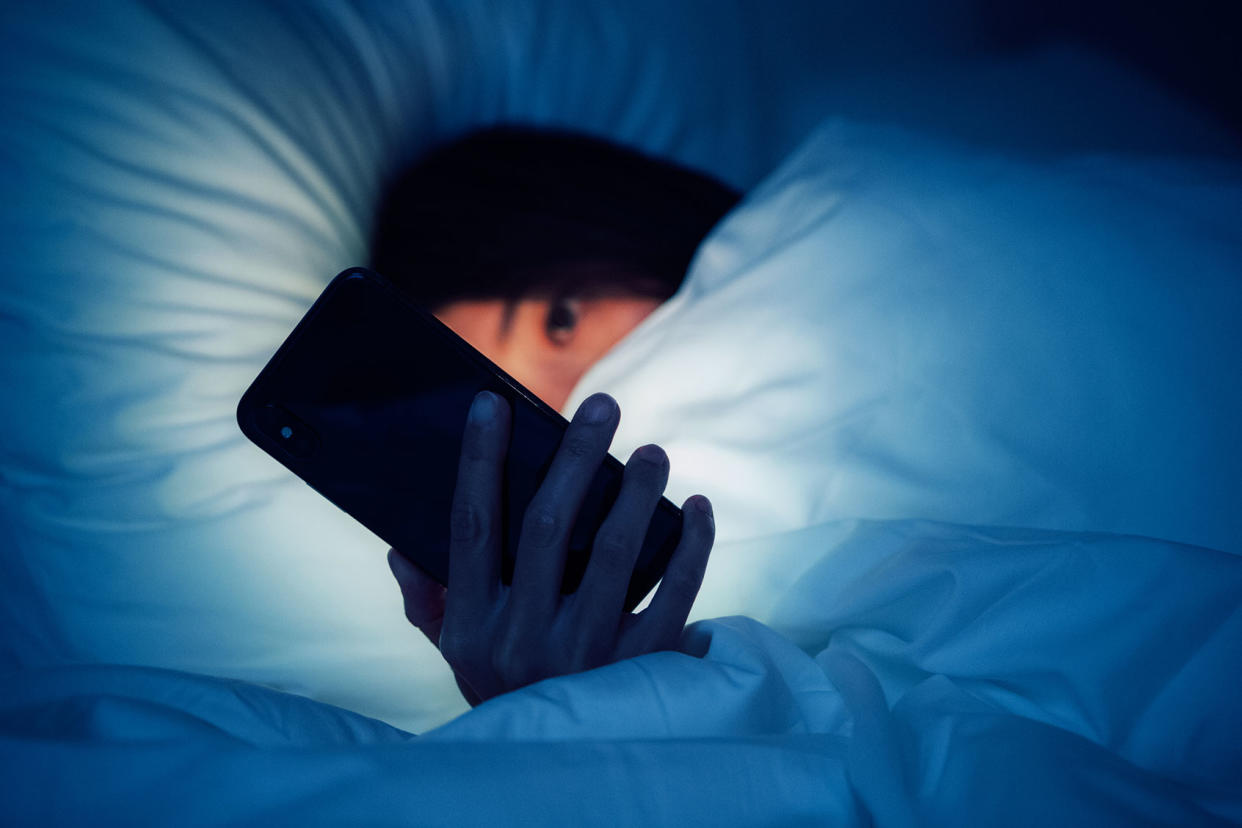Is blue light actually harmful to your sleep? Why the science isn't so clear on this popular belief

For anyone who cares about their so-called "sleep hygiene" — essentially good, deep, restful sleep — it has become conventional wisdom that blue light will wreck it. Blue light is often the wavelength of light produced by electronic devices like televisions, smart phones and computers. You know, the obsidian slabs we stare into at all hours of the day, even long after the sun has set. But is blue light actually bad for you?
In 2021 the journal BMC Public Health published a comprehensive review of the existing scientific research on blue light and sleep, concluding that there was at least some link between electronics use and shortened sleep spans for children between the ages of six and fifteen. That same study determined that 13-to-15-year-olds struggle with insomnia and unsatisfying sleep when they are exposed to social media and screen time before sleeping. A 2018 study from the Journal of American College Health also linked late-night texting in college students with a plethora of sleep-related problems.
As such, it would seem to be close to an open-and-shut case: If you want a healthy night's sleep, stay away from electronic devices in the period before you go to bed. Right?
Yet even that BMC Public Health study acknowledged that there needs to be a lot more research on how blue light actually impacts sleep quality. Moreover, there are other studies that complicate the narrative about blue light and sleep. Even though it is tempting to offer a definitive answer as to whether blue light exposure damages a person's sleep, this may be one of those issues where the verdict is still out.
Take a 2019 study published in the journal Current Biology. Scientists exposed mice to lights that had different hues but were equal in brightness and found that yellow light did more damage to their sleep than blue light. In fact, it seemed that light which the mice associated with warmer weather tricked their bodies into thinking it was still daytime — cooler blue light, which is more similar to nighttime, did not have that effect.
"Contrary to common beliefs, it is yellow rather than blue colors that have the strongest effect on the mammalian circadian system," the authors explained. "This relationship aligns with natural shifts in the color of ambient illumination, detectable during twilight by mammals with di- and tri-chromatic visual systems."
Indeed, instead of being a hinderance to proper health, there is research suggesting blue light exposure might actually be good for you. In a 2022 systematic review published in the journal Frontiers in Physiology, scientists denounced the "bad reputation" that blue light has developed when it comes to sleep hygiene. After analyzing the existing body of research regarding blue light and sleep quality in athletes, they found that half found tiredness was decreased after blue light exposure; one-fifth found sleep quality had decreased; and one-third had found sleep duration had decreased. Slightly less than half found that blue light exposure made it harder for people to fall asleep once they started trying, while half found that overall sleep efficacy had decreased.
Want more health and science stories in your inbox? Subscribe to Salon's weekly newsletter Lab Notes.
Yet there was more news: "More than one half of the studies found cognitive performance to be increased," the researchers wrote. "Slightly more than two thirds found alertness to be increased and reaction time to be decreased. Slightly less than half of the studies found wellbeing to be increased."
In other words, they concluded that "blue light exposure can positively affect cognitive performance, alertness and reaction time. This might benefit sports reliant on team-work and decision-making and may help prevent injury." At the same time, they acknowledged that the existing research indicates "blue light might also have negative effects such as the decrease in sleep quality and sleep duration, which might worsen an athlete’s physical and cognitive performance and recovery." Overall they argued that further studies are needed.
Nonetheless, this remains a difficult question to answer, with often contradicting results. In a study published earlier this year by The Journal of Biological and Medical Rhythm Research, researchers who reduced the amount of blue light emitted from mobile phone screens late at night would improve the sleep quality of medical students between the ages of 20 and 22. Like one group of the studies covered by the 2022 systematic review, the latest research wound up reaching a dire conclusion about blue light and sleep quality.
"The study has shown that a reduction of blue light emission from LED backlight screens of mobile phones during the night leads to improved subjective quality of sleep in students, as well as improvement in daytime functioning and going to sleep," the authors concluded.
Given the ambivalent nature of the research, perhaps the most scientifically sound approach to the problem of blue light exposure and sleep is to look at one of the original papers to illuminate the subject. Published in 1993 by the journal Sleep, it found that bright blue light in the evening can delay the timing of a person's biological clock, but that this light would have to be much brighter than that produced by common electronic device screens. Certainly it stands to reason that before one goes to sleep, it would be beneficial to limit exposure to bright lights of all kinds. It also would not hurt to in general reduce one's physical and intellectual stimulation, such as the kind produced by electronic devices regardless of whether blue light is a factor.
Yet at the same time, it may not necessary to beat yourself up for poor sleep hygiene if you decide to binge watch Netflix on a work night, either. There are also other ways of improving your sleep, from avoiding alcohol to taking naps during the day.

